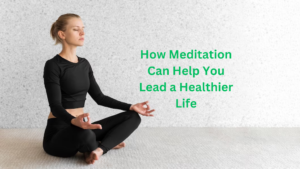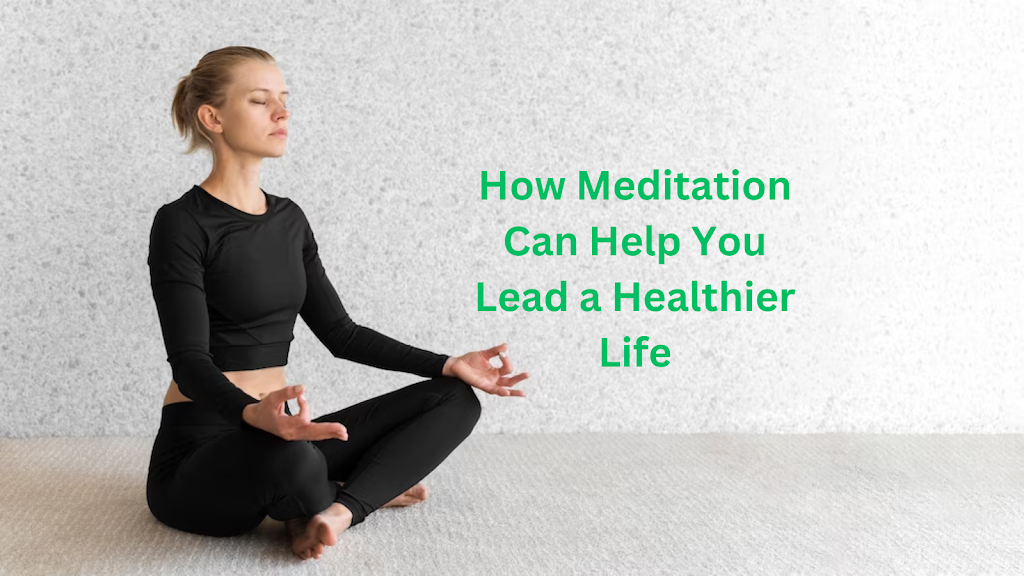What Is Meditation?
Meditation is an ancient practice that has been around for centuries, but it’s only recently that it has become popular in the western world. It is a type of mental exercise and self-reflection where you focus on calming your mind and body and clearing out any negative thoughts or stress. The goal of meditation is to help you become aware of what’s going on inside your body, mind, and emotions.
When done properly, meditation can be incredibly beneficial to your overall health. It can reduce stress, improve sleep quality, boost mood and concentration, increase self-awareness and self-confidence, and even help physical ailments like headaches and muscle tension. Regular practice can even lead to deeper experiences of relaxation that can help you lead a healthier life!
Benefits of Meditation: Managing Stress & Improved Health
Do you experience feelings of stress, anxiousness or even depression? With the hectic and overwhelming pace of life, it’s no surprise why. Meditation can be extremely beneficial in helping manage these emotions and keep your health in check.
Studies have shown that meditation can have positive effects on reducing stress, improving mood, and boosting brain health. It has been found to be an effective way to reduce overall levels of anxiety and depression, as well as decrease symptoms of PTSD. Additionally, meditation is linked to improved concentration, better sleep quality and a greater sense of peace and joy.
 |
| How Meditation Can Help You Lead a Healthier Life |
Other benefits include increasing self-awareness and self-compassion, reducing blood pressure, strengthening the immune system, promoting healthy habits such as eating healthy foods or exercising regularly, and much more! Ultimately, meditating daily can help you to become more mindful of yourself and your surroundings—enabling you to lead a healthier lifestyle.
Techniques and Duration to Practice Meditation
You might be thinking, “Ok, that all sounds great, but how does meditation actually work?”
Well, there are several different types of meditation. The most popular involve focusing on your breath or repeating a mantra. And depending on the type of meditation you choose, the duration can range from 5 to 45 minutes.
But whichever technique you choose, the most important thing to remember is that it’s up to you to decide what works best for your practice. And as with anything new, it might take a bit of trial and error until you figure out what fits your lifestyle and routine best. So don’t be discouraged if it takes a few tries before you settle into a rhythm.
Take it slow
No matter what technique you choose, make sure to take things slow at first — especially if it’s something completely new for you. A guided practice from a certified instructor will help you get started and understand the basics of meditating before you start a self-practice.
Regular practice
At least 15 minutes per session is recommended for beginners to get the full benefits meditation has to offer — such as improved concentration and focus — but ultimately any form of practice is better than nothing at all! Aiming for five sessions per week is a great way to start (even if they’re only 10 minutes each), and with consistency over time you can extend the amount of time until each session feels like second nature.
How to Incorporate Meditation Into Your Day
One of the best and easiest ways to start a meditation practice is to find ways to incorporate it into your daily life. Here are just a few examples of how you can do this:
Taking a Breathing Break
Set aside a few minutes during your day to pause and take 10 deep breaths. If you’re feeling overwhelmed, take some time for yourself and focus on your breath—it can help you shut out distractions and clear your mind.
Taking Short Walks
Meditation doesn’t have to be done in one long session; it can also be done in short bursts throughout the day. Try taking short walks with the intention of being mindful—connect with your surroundings, listen carefully to the sounds, feel the sensation of each step. Doing this will help free your mind from its repetitive loops, giving you more clarity and direction.
Listening To Music
Listening to music or sounds that put you in a relaxed state can be a great way to release stress and tension. Research has even found that listening to calming music can reduce blood pressure, slow heart rate, reduce depression symptoms, and increase overall mental health. So take some time each day to turn on some tunes and relax!
By finding ways to integrate meditation into your routine throughout the day, you’ll not only benefit from improved mental clarity and focus but also reap other mental health benefits such as reduced stress levels and better sleep quality—all making it easier for you live healthier lifestyle!
Ways to Make Meditation More Enjoyable
Meditation is a lot easier when you can enjoy it. Here are some tips to make the process of meditation more enjoyable and fun:
Move Your Body
You don’t have to assume a traditional meditating pose for the duration of your practice; instead, break up your practice by getting into different positions throughout the session. Movement can help keep your body more comfortable and less prone to stiffness, which can cause mental distractions.
Listen to Music
Listening to music – such as soothing instrumental or classical tracks – helps put your mind at ease. It’s okay if it takes you a few tries before you find a setlist that resonates with you. Once you do, experiment with different genres or songs that give you that extra boost whenever you need it.
Incorporate Visualization
Visualization is an incredibly powerful tool in meditation. Try closing your eyes and picturing yourself in a soothing setting, such as sitting by a beach or hiking in nature — this can help evoke a sense of inner peace while reducing stress and anxiety levels.
Experiment with Different Practices
If one type of meditation isn’t working for you, try another! Combine mindfulness practices with breath work or yoga poses — anything that helps create balance between body and mind — for an even greater impact on your physical, mental and emotional wellbeing.
Conclusion
When it comes to leading a healthier life, the benefits of meditation are more than just physical. Not only does it allow us to take a break from our hectic lives and refocus our energy, but it can also help us develop better habits and cultivate a healthier mindset.
The best part is that anyone can practice meditation, regardless of their level of experience. All it takes is a few minutes a day and a willingness to find inner peace and balance. So, if you’re looking for a way to feel more grounded, connected, and mindful in your everyday life, give meditation a try and see how it changes your life for the better.
